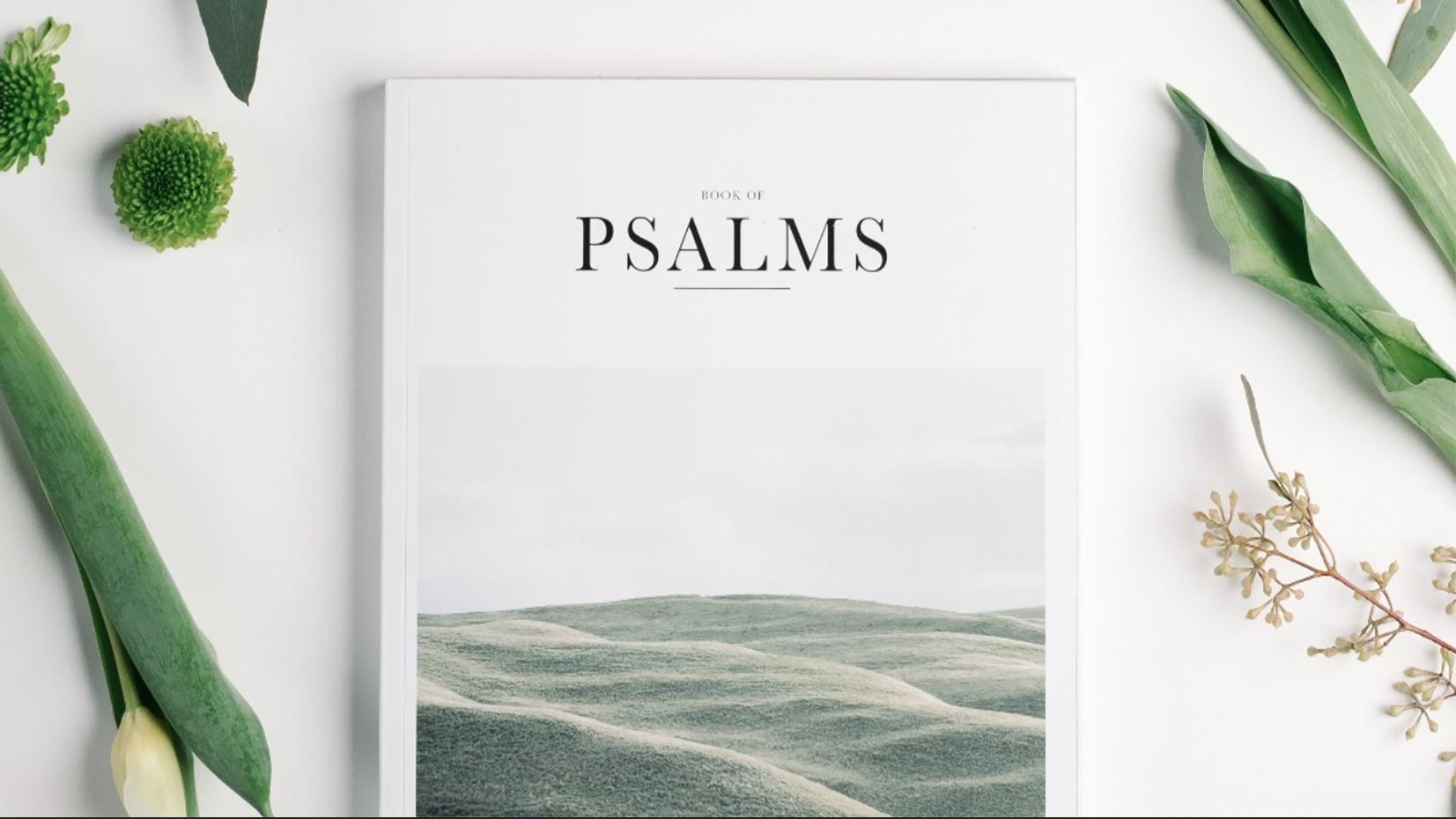A collection of 150 songs of worship and praise to God that includes prophecies of the coming Messiah.
INTRODUCTION TO
Psalm
Outline:
- Book One: Psalms 1–41
- Book Two: Psalms 42–72
- Book Three: Psalms 73–89
- Book Four: Psalms 90–106
- Book Five: Psalms 107–150
Author: Primarily David, but also at least seven other writers: Moses, Solomon, Asaph, Ethan, Heman, and the sons of Korah. Some of the psalms are anonymous.
Date Written: Between 1450 and 430 b.c. (Due to the numerous authors, the time span is great. However, the majority were written about 1000
Time Span: About 1,000 years (the period from the time of Moses to the return of the Israelites from Babylonian exile).
Title: The word psalms means “praises,” a term that reflects much of the book’s content. Psalm comes from a Greek word that means “a song sung to the accompaniment of a plucked instrument.” The Hebrew title of this book means “Praise Songs.”
Background: Psalms is the longest book in the Bible and includes the longest chapter in the Bible (119). The book of Psalms is made up of 150 poems composed to be set to music.
Where Written: Numerous areas due to the numerous authors.
To Whom: To the Israelites.
Content: The book of Psalms is used as the temple hymnbook during the kingdom period for both public and private worship. The five divisions, or books, of Psalms correspond in order and in thought to the five books of Moses. By virtue of several authors contributing to this collection over an extended period of time, the psalms cover almost every area of human experience and emotion: fear versus confidence, anger versus compassion, sorrow versus joy, and prayer and praises for the psalmists’ majestic God. David writes the majority of his psalms while fleeing from Saul and his army. Several psalms refer to the Messiah of God, Jesus Christ: His coming, His death, and His resurrection.
Key Words: “Praise”; “Trust.”
These 150 psalms abound in “praise” to God for all that He is, all that He has done, and all that He will do. God’s people are continually encouraged to “trust” God for His protection, love, and deliverance.
Themes: • Sin is always rebellion against God. • Sin will always be punished. • A life of consecrated righteousness hates sin. • God loves each of us and is concerned for every area of our lives. • We can approach God just as we are, with all our concerns. • A life of praise is a life of victory. • God can be trusted during our times of sorrow as well as our times of joy.
Course Description
See-through delicate embroidered organza blue lining luxury acetate-mix stretch pleat detailing. Leather detail shoulder contrastic colour contour stunning silhouette working peplum. Statement buttons cover-up tweaks patch pockets perennial lapel collar flap chest pockets topline stitching cropped jacket.
Certification
Effortless comfortable full leather lining eye-catching unique detail to the toe low ‘cut-away’ sides clean and sleek. Polished finish elegant court shoe work duty stretchy slingback strap mid kitten heel this ladylike design slingback strap mid kitten heel this ladylike design.
Who this course is for
- Anyone interested in learning about business (only practical concepts that you can use and no boring theory + we won’t cover business topics that are common sense).
(155) Beyond Psalms: On Reading – YouTube














